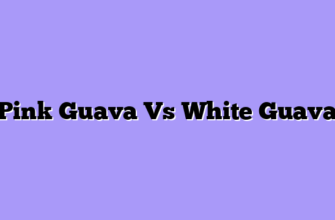Guava leaves, often discarded as a byproduct of fruit consumption, possess a wealth of medicinal properties that have been recognized for centuries in traditional medicine. Among their diverse applications, the potential of guava leaves in diabetes management has garnered significant attention, prompting scientific investigations to unravel their underlying mechanisms.
Guava Leaves for Diabetes Management
The antidiabetic properties of guava leaves are attributed to their rich phytochemical composition, particularly the presence of polyphenols, flavonoids, and tannins. These compounds exhibit potent antioxidant activity, helping to combat oxidative stress, a key contributor to the development of diabetic complications. Studies have shown that guava leaf extracts can effectively scavenge free radicals, reducing the damage they inflict on cells and tissues.
Furthermore, guava leaves have demonstrated the ability to regulate blood glucose levels. Research suggests that their active compounds can enhance insulin sensitivity, allowing the body to utilize glucose more efficiently. This improved glucose uptake can lead to a reduction in blood sugar levels, mitigating the hyperglycemia characteristic of diabetes.

The mechanisms by which guava leaves exert their antidiabetic effects are multifaceted. They have been shown to inhibit the activity of enzymes involved in carbohydrate metabolism, such as α-amylase and α-glucosidase. These enzymes break down complex carbohydrates into simpler sugars, which are then absorbed into the bloodstream. By inhibiting their activity, guava leaves can slow down the rate of glucose absorption, preventing rapid spikes in blood sugar levels.
While promising, it is important to note that the research on guava leaves and diabetes management is still ongoing. More studies are needed to fully understand their efficacy and safety, particularly in human subjects. It is crucial to consult with a healthcare professional before incorporating guava leaves into any treatment regimen, as they may interact with existing medications or have potential side effects.
Guava Leaves for Digestive Health
- Guava leaves are rich in antioxidants, particularly polyphenols, which exhibit potent anti-inflammatory and antimicrobial properties. These compounds play a crucial role in maintaining gut health by combating harmful bacteria and reducing inflammation in the digestive tract. Studies have shown that guava leaf extracts can effectively inhibit the growth of common foodborne pathogens, such as Salmonella and Escherichia coli, which are often implicated in food poisoning and gastrointestinal distress.
- Furthermore, guava leaves have been traditionally used to alleviate diarrhea, a common digestive ailment characterized by frequent loose stools. Research suggests that the tannins present in guava leaves possess astringent properties, which help to tighten the intestinal lining and reduce the frequency and severity of diarrhea. Additionally, guava leaves contain compounds that promote the absorption of fluids and electrolytes, further contributing to the management of diarrhea.
- Beyond their anti-diarrheal effects, guava leaves have also been investigated for their potential to treat other digestive disorders, such as dyspepsia and irritable bowel syndrome (IBS). Dyspepsia, commonly known as indigestion, is characterized by symptoms such as bloating, heartburn, and abdominal pain. Guava leaves have been shown to reduce gastric acid secretion, which can contribute to dyspepsia. Moreover, their anti-inflammatory properties may help alleviate the discomfort associated with this condition.
- IBS, a chronic disorder affecting the large intestine, is characterized by abdominal pain, bloating, and changes in bowel habits. While the exact mechanisms underlying IBS are not fully understood, research suggests that guava leaves may offer relief from its symptoms. The anti-inflammatory and antispasmodic properties of guava leaves may help reduce intestinal spasms and inflammation, contributing to the management of IBS symptoms.
- It is important to note that while the scientific evidence supporting the use of guava leaves for digestive health is promising, further research is needed to fully understand their efficacy and safety. Additionally, it is crucial to consult with a healthcare professional before incorporating guava leaves into your diet, especially if you have any underlying medical conditions or are taking medications.
Guava Leaves for Skin Care
The remarkable benefits of guava leaves for skin care stem from their rich composition of antioxidants, vitamins, and minerals. These compounds work synergistically to combat free radical damage, promote collagen production, and soothe inflammation, resulting in a healthier and more radiant complexion.
One of the most notable benefits of guava leaves is their ability to combat acne. The leaves contain antibacterial and anti-inflammatory properties that effectively target the bacteria responsible for acne breakouts. Applying a paste made from crushed guava leaves directly to affected areas can help reduce redness, swelling, and the formation of new pimples.
Furthermore, guava leaves are known for their remarkable skin-lightening properties. The leaves contain a natural bleaching agent that helps reduce hyperpigmentation, age spots, and uneven skin tone. Regular application of guava leaf extracts or infusions can contribute to a brighter and more even complexion.
Beyond acne and hyperpigmentation, guava leaves offer a range of other skincare benefits. Their anti-inflammatory properties can soothe irritated skin, reduce redness, and alleviate the symptoms of eczema and psoriasis. The leaves also possess astringent properties that help tighten pores, reduce oil production, and control acne.
The versatility of guava leaves extends to their use in hair care as well. The leaves are known to promote hair growth, prevent hair loss, and add shine and luster to the hair. Regular application of guava leaf extracts or infusions can strengthen hair follicles, stimulate blood circulation to the scalp, and nourish the hair strands.
While guava leaves offer a natural and effective approach to skincare, it is important to note that individual results may vary. It is always advisable to conduct a patch test before applying any topical remedies to avoid allergic reactions. Additionally, consulting with a dermatologist is recommended for any persistent skin concerns.
Guava Leaves for Weight Loss
- The potential of guava leaves for weight loss stems from their unique chemical composition. They are rich in antioxidants, particularly polyphenols, which have been linked to various health benefits, including weight management. These compounds are believed to play a role in regulating blood sugar levels, boosting metabolism, and reducing fat absorption.
- One of the key mechanisms by which guava leaves may contribute to weight loss is through their potential to regulate blood sugar levels. Studies have shown that guava leaf extracts can help control blood glucose spikes after meals, preventing the body from storing excess carbohydrates as fat. This effect is attributed to the presence of compounds like quercetin and myricetin, which have been shown to enhance insulin sensitivity and improve glucose uptake by cells.
- Furthermore, guava leaves are believed to possess thermogenic properties, meaning they can increase the body’s metabolic rate. This increased metabolism leads to the burning of more calories, even at rest, potentially contributing to weight loss. The thermogenic effect is attributed to the presence of compounds like tannins and flavonoids, which stimulate the production of heat in the body.
- Another mechanism by which guava leaves may aid in weight loss is through their potential to reduce fat absorption. Studies have suggested that guava leaf extracts can inhibit the activity of pancreatic lipase, an enzyme responsible for breaking down dietary fats. By reducing fat absorption, guava leaves may help prevent the accumulation of excess fat in the body.
- While research on the weight loss benefits of guava leaves is still ongoing, the available evidence suggests that they may offer a natural and potentially effective approach to weight management. However, it is important to note that guava leaves should not be considered a substitute for a healthy diet and regular exercise.
- It is also crucial to consult with a healthcare professional before incorporating guava leaves into your weight loss regimen, especially if you have any underlying medical conditions or are taking medications. They can provide personalized advice and ensure that guava leaves are safe and appropriate for your individual needs.
Guava Leaves for Oral Health
The remarkable therapeutic potential of guava leaves stems from their rich phytochemical composition. They are brimming with antioxidants, tannins, flavonoids, and other bioactive compounds that exhibit antimicrobial, anti-inflammatory, and analgesic properties. These properties make them a natural and effective solution for a range of oral health concerns.
One of the most prominent uses of guava leaves in oral health is for the treatment of gingivitis, a common inflammatory condition affecting the gums. The anti-inflammatory properties of guava leaves help to reduce swelling, redness, and bleeding gums, effectively alleviating the symptoms of gingivitis. This is attributed to the presence of tannins, which possess astringent properties that constrict blood vessels and reduce inflammation.
Furthermore, guava leaves have proven effective in combating bad breath, a condition often caused by bacteria in the mouth. The antimicrobial properties of guava leaves, particularly the presence of flavonoids, effectively inhibit the growth of bacteria responsible for halitosis. This makes guava leaves a natural and refreshing alternative to commercially available mouthwashes.
Beyond gingivitis and bad breath, guava leaves have also been traditionally used to address toothaches and dental caries. The analgesic properties of guava leaves provide temporary relief from tooth pain, while their antimicrobial action helps to prevent the formation of cavities. This is achieved through the inhibition of bacteria that contribute to tooth decay.
The application of guava leaves for oral health can take various forms. They can be brewed into a tea and used as a mouthwash, or they can be chewed directly to release their beneficial compounds. Additionally, guava leaf extracts are incorporated into various oral care products, such as toothpastes and mouthwashes, to enhance their therapeutic efficacy.
However, it is important to note that while guava leaves offer a natural and effective approach to oral health, they should not be considered a substitute for professional dental care. Regular dental checkups and cleanings remain crucial for maintaining optimal oral hygiene.
In conclusion, guava leaves have long been recognized for their remarkable therapeutic potential in oral health. Their rich phytochemical composition, particularly the presence of antioxidants, tannins, and flavonoids, provides a natural and effective solution for a range of oral health concerns, including gingivitis, bad breath, toothaches, and dental caries. While guava leaves offer a valuable addition to oral hygiene practices, they should not replace professional dental care.
Q&A
**1. What are guava leaves used for in traditional medicine?**
Guava leaves are used in traditional medicine to treat a variety of ailments, including diarrhea, dysentery, and high blood pressure. They are also believed to have anti-inflammatory and antioxidant properties.
**2. Can guava leaves help with diabetes?**
Some studies suggest that guava leaves may help regulate blood sugar levels and improve insulin sensitivity, potentially aiding in diabetes management. However, more research is needed to confirm these effects.
**3. Are guava leaves effective for weight loss?**
Guava leaves are sometimes used as a weight loss aid due to their potential to suppress appetite and boost metabolism. However, scientific evidence supporting these claims is limited.
**4. How can guava leaves be used for skin care?**
Guava leaves are rich in antioxidants and have anti-inflammatory properties, making them beneficial for skin care. They can be used in face masks, toners, and other skincare products to help reduce acne, blemishes, and wrinkles.
**5. Are guava leaves safe to consume?**
Guava leaves are generally considered safe for consumption. However, it’s important to consult with a healthcare professional before using them for medicinal purposes, especially if you have any underlying health conditions or are taking medications.








